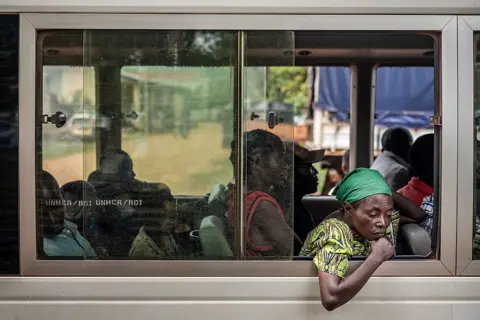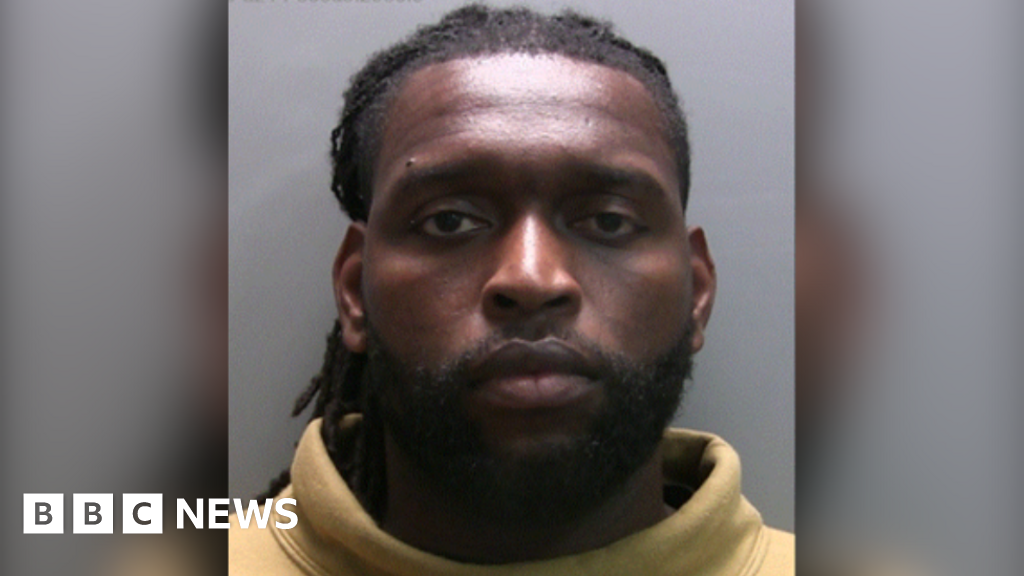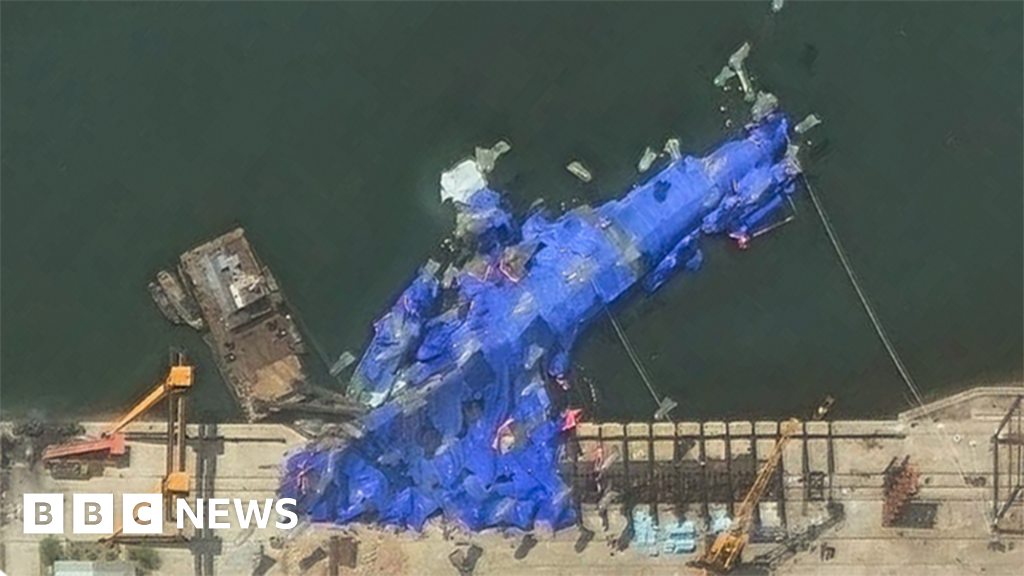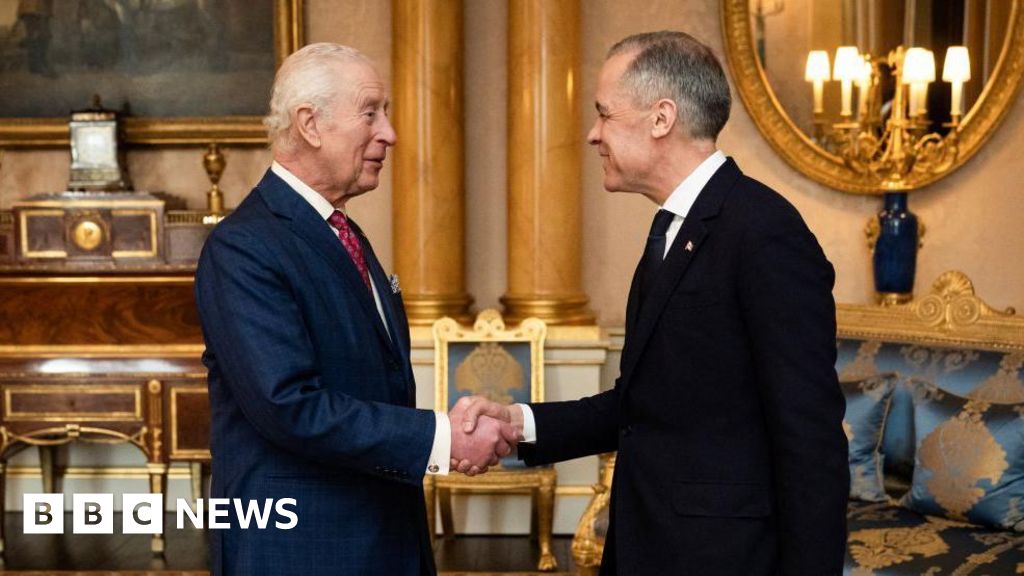ARTICLE AD BOX
Brandon Drenon
BBC News, Washington DC

 Getty Images
Getty Images
Thousands of civilians have been killed by armed militias in recent years, the UN says
A man slept outside in a car park overnight in Kenya with his wife and infant son in January, consumed by confusion and disbelief.
The family, refugees from the Democratic Republic of Congo (DRC), had been expecting a flight to the US for resettlement in just hours' time.
But after US President Donald Trump suspended the US refugee programme just two days before the family's scheduled departure, the man was told their flight to America was abruptly cancelled – less than 24 hours before take-off.
"I didn't have anywhere else to go," the man, who asked to go by the name of Pacito to protect his identity, told the BBC.
He had already moved his family from their home, sold his furniture and most of their belongings, and prepared for a new life in America. They remain in Kenya, which is a safer prospect than the DRC, where they fled conflict.
They represent just three of the roughly 120,000 refugees who had been conditionally approved to enter the US, but who now wait in limbo due to the refugee pause.
Trump's move signalled a major change in the approach that was followed by successive US leaders. Under former President Joe Biden, over 100,000 refugees came to the US in 2024 - the highest annual figure in nearly three decades.
Since entering office in January, Trump has moved quickly to deliver on his campaign promise of an "America first" agenda that has involved dramatically restricting routes by which migrants can come to the US.
The effort has also included an ambitious deportation programme under which people have been deported to a notorious mega-prison in El Salvador against a judge's orders, as well as revoking visas from over a thousand university students, and offering illegal immigrants a sum of $1,000 each to "self-deport".
The White House has defended its actions by suggesting that many of those being forced from the country are either violent criminals or threaten America's interests.
But exceptions to the policies have been made for a select few.
"I didn't come here for fun": Afrikaner defends refugee status in US
The president signed an executive order in February that opened the refugee pathway exclusively to Afrikaners - white South Africans who he claimed were victims of "racial discrimination".
A plane carrying 59 of them landed at an airport just outside Washington DC earlier this month, in a ceremonious greeting that included the deputy secretary of state.
"It's not fair," Pacito commented. "There are 120,000 refugees who went through the whole process, the vetting, the security, the medical screenings. We've waited for years, but now these (Afrikaners) are just processed in like three months."
The situation has left Pacito feeling stuck. Since he has sold all of the equipment that he needed to work in his field of music production, for the past few months he has struggled to find odd jobs to earn money for his family. "It's kind of hard," he said.
Trump has further justified his decision to accept Afrikaners as refugees in the US because he says they face "a genocide" - a message that has been echoed by Elon Musk, his South African-born close ally.
Such claims have circulated for years, though are widely discredited, and have been denied by South Africa.
However, the call has taken on new animus – particularly among right-wing groups in the US – ever since a law was passed in South Africa in January that allowed the government to seize land from white landowners "when it is just and equitable and in the public interest". The post-apartheid-era law was meant to address frustrations around South Africa's disproportionate land ownership; the country's white population is roughly 7% but owns roughly 72% of farmland.
Though South African President Cyril Ramaphosa has said no land has been taken under the new law, days after it was passed, Trump ordered the US to freeze hundreds of millions of dollars in aid to the country. A diplomatic feud followed.
The fraying relationship was laid bare on Wednesday during a tense White House meeting between the pair. Trump ambushed Ramaphosa on live TV with claims of white "persecution" - an allegation Ramaphosa emphatically rejected.
Watch moment Trump confronts South Africa's president with video
Analysts have described the broader foreign policy of Trump's second term as isolationist, with numerous moves made to cut foreign aid and to disentangle the US from foreign conflicts, in addition to reducing immigration.
Trump has also terminated tens of billions of dollars in global aid contracts - including funds that supported lifesaving HIV/Aids programmes in South Africa. He has justified the cuts by saying his team identified fraud within the aid spending.
The moves appear in stark contrast to the White House's decision to fast-track the arrival of white South Africans - a fact that has been critiqued by refugee advocacy groups.
"Every case of protection should be based on credible evidence of persecution, and the central question here is about fairness and equal treatment under the law," Timothy Young from the non-profit organisation Global Refuge told the BBC.
"So if one group can access humanitarian pathways, then so should Afghan allies, persecuted religious minorities and the thousands of other families who face serious threats and who meet the legal criteria for refugee status," Mr Young said.
Among its other moves, the Trump administration has chosen not to renew the temporary protected status for Afghans in the US, saying "Afghanistan has had an improved security situation" and a "stabilising economy". They now face deportation.
South Africa does not release crime figures based on race, but the latest figures revealed that 6,953 people were murdered in the country between October and December 2024.
Of these, 12 were killed in farm attacks. Of the 12, one was a farmer, usually white, while five were farm dwellers and four were employees, who were likely to have been black.
Meanwhile, in the DRC, thousands of civilians have been killed by armed militias in recent years, and nearly 100,000 more displaced, according to UN figures.
Pacito fled the DRC on foot in 2016, recalling "guns everywhere I looked" at the time, and "no peace". He said family members of his wife had been killed.
Among the others who see the US as an increasingly unlikely place to resettle as refugees is the Hammad family, who are from Gaza but are now living in Egypt.
"After what happened with Trump, I think it will be impossible," Amjad Hammad told the BBC.
He and his family had applied for the US's green card lottery in 2024 but found out in May they had been denied.
He expressed confusion about Trump's concern for the plight of white South Africans over and above other groups.
"What are the Palestinians facing, if the people in South Africa are facing a genocide?" he asked.
More than 53,000 people have been killed across Gaza since 7 October 2023, when Israel launched a campaign to destroy Hamas - the Palestinian armed group that launched a cross-border attack on southern Israel in which about 1,200 people were killed and 251 others were taken hostage.
The confusion voiced by Mr Hammad is similar to the views of Pacito, whose hopes of resettling in the US were dashed in January.
Since then, he has been left effectively homeless in Nairobi, drifting from place to place to wherever someone will accept him and his family for a few days.
"Sometimes we get food. Sometimes we don't," he said. "We've been struggling very badly."
The policy changes on the US side give him little hope that he will be accepted by Trump, but the alternative of heading back across Africa to his home country is unimaginable. "I can't go back," he said.

 3 hours ago
2
3 hours ago
2








 English (US) ·
English (US) ·